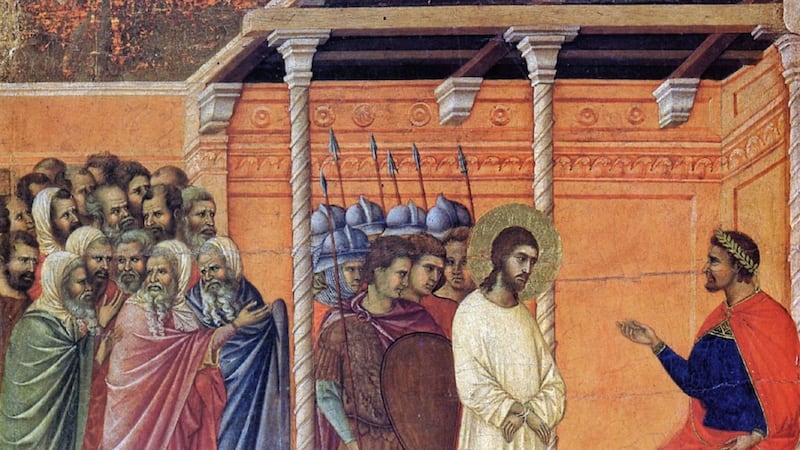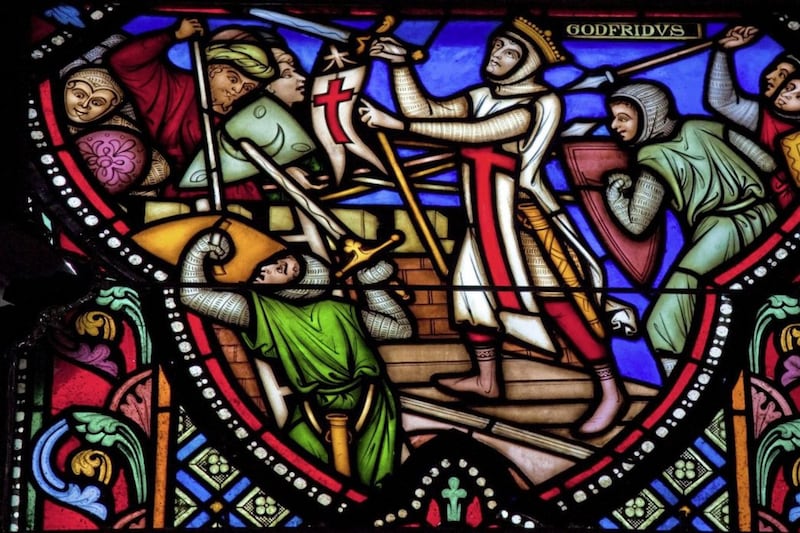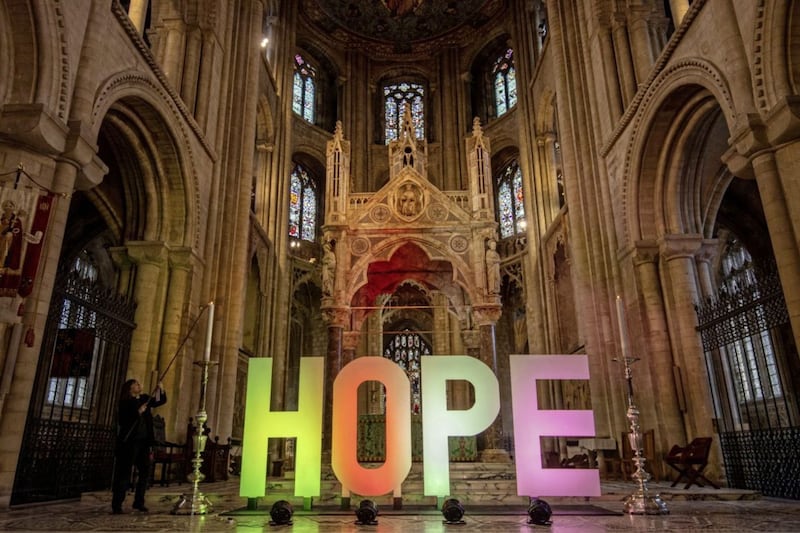"SO you are a king then?" said Pilate.
On Sunday November 11, the centenary of Armistice Day was commemorated.
One hundred years ago, at the 11th hour of the 11th day of the 11th month, the 'Great War' ended.
The guns along the battle front might have fallen silent, but what was to develop across Europe in the wake of the First World War was to be even more terrifying.
A perverse philosophy took root and flourished - one which would visit, once more, upon humanity unspeakable sufferings and horrendous bloodshed.
The rise of fascism and the dictatorships, in post-First World War Europe, is the backdrop to the Feast of Christ the King.
In 1925 the then-Pope was concerned that so many people were being taken in by the false promises of leaders such as Benito Mussolini and later Adolf Hitler.
In response to the jackboot, the Pope established this feast, proclaiming that Christ's kingdom is not one of ruthlessness and oppression, but a "a kingdom of truth and life, a kingdom of holiness and grace, a kingdom of justice, love and peace".
Pilate asked Jesus: "Are you a king then?" Jesus answered: "Yes, I am a king."
However, to imagine Our Lord as a king, as some earthly kings have been, is to miss the point.
Recently I saw with my own eyes one of the most powerful and moving images of Christ the King.
It was in Germany where I was visiting a friend. Together we visited the city of Würzburg.
On the night of March 16 1945 over 200 RAF bombers firebombed that city - there was no military purpose other than to demoralise the citizens.
In the firestorm that followed 90 per cent of the city was destroyed and 5,000 people perished.
In one of the restored churches a large wooden crucifix, which partially survived the firestorm, has been retained.
The wood of the cross is charred as is one of the hands; the feet and lower legs are missing and the figure is badly scorched and blackened. There is no beauty in it.
Nevertheless, I found myself deeply moved as I stood before that crucifix - a heart-rending symbol of man's inhumanity to man, but much more than that, an extraordinary symbol of the compassionate Christ who enters into the sufferings of humanity. He is the King of Compassion.
The Bible insists that God's king is a shepherd whose primary concern is the good of his people.
The beautiful Psalm 23 allows us to visualise this model of kingship: "The Lord is my shepherd... near restful waters he leads me... he guides me along the right path..."
When Pilate asked Jesus, "So you are you a king then?", the answer of Jesus - "Yes, I am a king" - contains the image of the Good Shepherd, "the one who lays down his life for his sheep".
This is what the man we call "the good thief" so wonderfully discovered when he asked Jesus to "Remember me when you come into your kingdom".
Jesus responded: "Truly, I say to you this day you will be with me in Paradise."
With Jesus it is never too late; he turns nobody away; there are no limits to his love.
That was the personal experience of the repentant thief, and of all who turn to Jesus.
I found myself deeply moved as I stood before that crucifix - a heart-rending symbol of man's inhumanity to man, but much more than that, an extraordinary symbol of the compassionate Christ who enters into the sufferings of humanity
He is the King of Compassion, the King of Reconciliation and Restoration, the King of Love.
An early Irish poet calls him "King of the Friday", that is "Good Friday".
Standing before our crucified King raises the question, "What do I feel?"
The one thing that Jesus Christ cannot do is to move the human heart. That needs a personal decision.
Who or what conquers my heart? Modern culture, in the search for joy and happiness turns in on itself; becomes preoccupied with its own interests, comforts, careers, and pleasures, compelled to constantly entertain itself, buy more stuff, and have more fun.
In the hectic search for happiness the quiet joy of the Lord's love is overlooked.
Jesus looks at us and yearns to shake up our lukewarm and superficial existence and awaken us to a new way of living.
Will we permit his unbounded love touch our hearts and move them to believe in love?
Those who gaze, with faith and trust, on the crucified Christ, see something astounding for they see the most majestic power on earth; they see love, forgiveness and mercy.
O king of the Friday
Whose limbs were stretched out on the Cross,
O Lord who did suffer
The bruises, the wounds, the loss,
We stretch ourselves
Beneath the shield of thy might,
Some fruit from the tree of thy passion
Fall on us this night.
- Fr Edward O'Donnell is parish priest of St Brigid's Parish in Belfast








